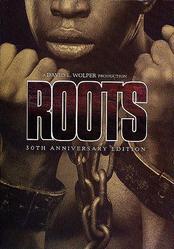
CAlex Haley (born 1921, died 1992) may not have been a noted playboy, but the author of Roots: The Saga of an American Family was associated with that publication nearly 20 years before the publication of the landmark novel.
The book led to the television series, which came out in 1977.
It was not, of course, as a photographer, but as a writer, a trade he practised in the U.S. Coast Guard, in which he served for 20 years. He retired from the service in 1959 and his first interview for Playboy (and the first official Playboy interview) came out in the September 1962 issue.
That interview with Miles Davis was the first of many outstanding interviews by Haley that appeared in Playboy, with Martin Luther King Jr., Cassius Clay (Muhammed Ali), Johnny Carson, Sammy Davis Jr. and Quincy Jones. His 1963 interview with Malcolm X was a landmark which led to his input on The Autobiography of Malcolm X, published in 1965.
Roots was the product of a decade's research and won the Pulitzer Prize. It was published in 37 languages and, of course, was made into the famous television series.
With nine Emmy Awards and a Golden Globe Award, the finale of Roots is among the three highest rated television programmes in U.S. history. Pride of place goes to the finale of MASH (the star of which, Mike Ferrell, was in Jamaica in late May for the Calabash International Literary Festival)
Haley spoke of the deep emotion he felt when, on September 29, 1967, he stood where Kunta Kinte, seven generations before his, had arrived at Annapolis, Maryland.
- M.C.
... going deeper after 30 years
MOVIE TITLE: Roots (Episode 1)
GENRE: Drama
WHO'S IN IT: LeVar Burton, Edward Anser, Cicely Tyson, Maya Angelou, William Blinn, Jam Scott, Lynn Stalmaster.
RATING: Five stars
RUNNING TIME: 95 minutes
WHAT IT'S ABOUT: It has been 30 years since Roots, the television series based on Alex Haley's landmark novel of the same name, hit television and this four-disc set brings it all together in a wonderful package, complete with case.
Three of the discs are double-sided, so there are six episodes, with a fourth disc having the special anniversary footage. Disc 1, Side A is labelled 'Episode 1'; it starts with pain and ends with pain. However, the beginning pain, that of Binta (Cicely Tyson), is in the birthing of Kunta Kinte (LeVar Burton), who she presents to his father Omoro Kinte (Thalmus Rasulala). The ending pain is that of Kunta Kinte and 169 other Africans (minus deaths on the trip) as they are taken away from the homeland forever on the ship the Lord Ligonier. It does, however, end with the chorus of resolve from the newly enslaved Africans that "we will live".
touching moments
Beautifully done without much in the way of fancy effects, Episode 1 of Roots has several touching moments from the birth of Kunta Kinte to the Mandinka people in The Gambia in 1750. There is his father holding him up to the universe and commanding "behold, the only thing greater than yourself". It then jumps to 15 years later and the first chills of slavery hit when an owner, hiring a new captain for the Lord Ligonier, says, "Our main cargo will consist of slaves" and presents a diagram of the ship to show a stocking plan for the Africans below decks.
Then there is the clanking of the wrist and hand shackles as they are being stocked for the voyage and the brutal sight of the LL branding iron. Ironically, the circumcision knife is also dramatically held up when the boys go on manhood training, but the glistening of light on the knife that will make the 'foto' of a boy into that of a man has a very different effect; in the same way that the birthing howls of Binta (very graphically done) are different from the caged screams of Kunta Kinte as he is shackled for the first time, after being captured by four black men with the white man with the gun at the ready.
And her screams when Omoro returns from the search for Kunta and tells her that he is forever outside her embrace cuts deep. Similarly, when Maya Angelou as Kunta's grandmother whacks him in his hut after he has come from manhood training and told his mother "it is not a woman's place to tell a man what to do", the intention and effect are very different from the lashes of the slave traders. Still, Episode 1 ends with a set of shackled men from various tribes resolved to unite, to survive, to fight back. And it is interesting to see the doubts of the captain, which bring some redress to the white people in Roots.
LONG STORY SHORT: The start of a journey into slavery, Episode 1 of Roots is painful and brutally honest.
THE REEL LOWDOWN: If you liked Amistad you will love this one.
BONUS FEATURES: 2007 documentary Crossing Over: How Roots Captivated an Entire Nation, 2002 documentary Remembering Roots, Roots: One Year Later (hosted by Louis Gossett Jr.), cast/crew commentaries, all on the fourth disc.
Courtesy of CariHome DVD.

